Which coffee growing countries are the wintering grounds of the Chestnut-sided Warbler, the Baltimore Oriole, the Wood Thrush and the Scarlet Tanager?
Leave your answer in the comments below. First ten correct answers get an autographed, hard cover copy of Bridget Stutchbury’s Silence of the Songbirds.
Birds & Coffee Question?
4 OctWhere does your coffee come from?
29 Sep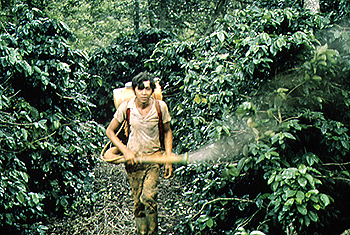
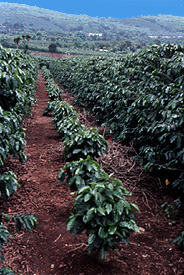
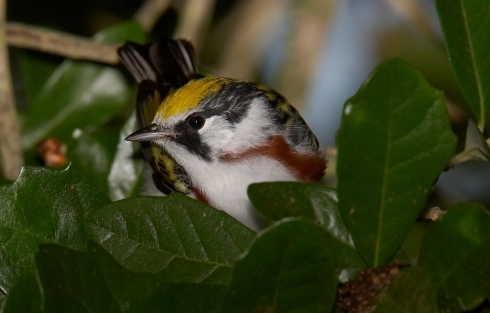
The current ‘bad eggs’ scandal reminds us all that we often have no idea about where our food comes from and under what conditions it is raised.
Until about forty years ago, we did not have to worry about where Latin American coffee came from. It was grown in a sustainable and earth friendly way for centuries. And coffee often provided the cash crop small family farmers needed to ‘stay on the land’. All the coffee we imported from the Americas was once shade grown and organic. But that is no longer true.
The movement to engineered coffee on massive sun farms requiring fertilizer means that most of the coffee we drink in the US today is literally killing songbirds. It is not very good for people and the planet, either.
In the world of coffee commerce it is common – and easy – to mark a coffee as ‘shade grown’. The ongoing greenwash of ‘shade’ coffee continues and this term is becoming acceptable as a proof that coffee is sustainable and organic. But a great deal of coffee marked as ‘shade’ is ‘fake’ shade – grown under a few non-native, fast growing trees that also need chemical feeding. When shade is faked not only birds suffer. Workers and their families in ‘chemical’ mass coffee farming are frequently exposed to conditions that are unacceptable by any standard.
We can only be absolutely certain that coffee comes from the rich, chemical free, traditional ‘rustic canopy’ coffee farms that birds and the planet need to be truly sustainable if it is certified ‘Bird Friendly®’.
The Smithsonian Migratory Bird Center’s independent ‘Bird Friendly® program provides us with the security we need to be sure we are buying ‘good coffee’. The SMBC’s independent certification is based on over 15 years of scientific research and over 100 inspectors have been trained by the SMBC to certify that ‘Bird Friendly®’ coffee comes from farms that provide migratory songbirds with winter habitat. These coffee farms provide a ‘last refuge’ against habitat loss as tropical forest destruction and ‘sun/chemical/monoculture’ coffees take over.
Birds & Beans® is the only coffee brand in the entire country which solely roasts ‘Bird Friendly®’ certified beans. We roast and sell only Smithsonian Migratory Bird Center certified coffee. Our roasts are also Fair-Trade and USDA Organic certified. Great for birds, people, the Earth. (Great tasting coffee too!).
By providing consumers and retailers with ‘triple certified’ coffee we are beginning to make a difference. Zealous adherence to ‘Bird Friendly®’ standards and passionate advocacy to our families, friends and retailers will take us to the level of volume that really matters for bird conservation and our mission.
Please join us in our mission. ‘Be Certain. Buy Certified®.’

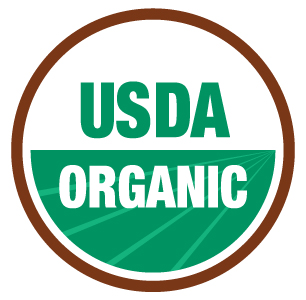
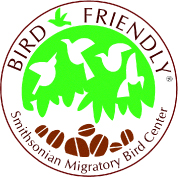
The Oil Spill
6 AugOver the past 100 days the BP disaster has reminded us daily that our world is small and fragile – and it seems that there is not too much we can do when disaster strikes.
But there are things we can do before an serious issue becomes a problem without a solution. As John Heilemann put it in his excellent piece, “All of which brings us back to the lessons of this mess—not for BP, but for America. For years, the company’s marketing played to the contradictory impulses felt by consumers when it came to energy and the environment: to our concern about the future of the planet, on one hand, and our inclination to duck the hard choices entailed by doing anything about it on the other.”(New York Magazine, June 18,2010)
When it comes to another commodity, coffee, most Americans are not even aware that they are ducking a choice – and one where it is not so very hard to make the right decision.
Last year we launched Birds & Beans coffee to make it easy for coffee drinkers in the US to buy Smithsonian Migratory Bird Center certified ‘Bird Friendly®’ coffee. Every bean sold by Birds & Beans® is certified by independent authorities to meet the rigorous standards of the Smithsonian. This is a certification based on decades of objective scientific research. Bird Friendly® coffee means that the migratory songbirds we know and love have a better chance to survive while on their wintering grounds in the tropics. Birds & Beans, also USDA Organic and Fair-Trade certified, is good for birds, the farm families who grow the beans and the Earth. Great tasting coffee too!
Our colleague, author of ‘Silence of the Songbirds’ and Professor at York University, Dr. Bridget Stutchbury says the most important thing we can do to help stop migratory songbird population loss is to purchase certified Bird Friendly® coffee. Tropical habitat destruction in Latin America is today’s biggest threat to migratory songbirds. Traditional ‘rustic canopy’ coffee farming, usually by small family farmers, provided a buffer against forest loss. But that too is under threat. The movement to engineered coffee on massive sun farms requiring fertilizer means that most of the coffee we drink in the US is literally killing songbirds. Today, most coffee on store shelves and in coffee shops in the US could not and does not meet ‘Bird Friendly®’ standards.
Just drinking Birds & Beans coffee gives wonderful birds – Baltimore Orioles, Wood Thrush, Scarlet Tanager, Chestnut-sided Warbler and dozens of other species – a chance to return to us each spring and fill our world with their beauty. What if, one spring, they did not return ?
Support of our mission, Drink Our Coffee and Save Our Birds. As summer ends and this years young songbirds get ready to take part in their first great migration and fly to Latin America, help them out. Buy some of our coffee and then give your friends and family a cup of Birds & Beans and tell them why you’ve become a part of the Bird Friendly® story.
It is usually hard to make a big difference, some things should be easy – drinking Birds & Beans ‘The Good Coffee’ is one of those things. Be Certain. Buy Certified™.
Who Wears Grey In Summer?
27 JulWell we do actually! And so does this cool cat (sorry wrong animal to mention on a bird blog!). Anyway this pretty Grey Catbird does and has been caught my many great photographers and some of our readers. Here are a few of our favorite pics from this season.
- Appologies I got carried away by all the grey, this is in fact a squirrel
Grey Catbirds are yet just another species of bird you can help to preserve by buying, drinking, or even just gifting Birds & Beans Coffee
Taxidermy anyone?
24 JulOk so this is a little off topic. More than a little in fact, but stuff it! (pardon the pun). At Birds & Beans we love reading about the birds we love. We get lots of Google Alerts, tips from readers and our coffee drinking buddies. Today we stumbled into ebay, specifically the bird taxidermy page. I appreciate taxidermy very much. I love birds and other animals. It is not cruel but rather celebratory. But Ebay has got some priceless pieces that made us really laugh! Who would want to own these? Better yet who is still in this profession thinking that these look good? So I went on a hunt to see what other treasures i could find….
I have not linked the pictures and they are in a sideshow for those of you who want to completely skip this rant.
Most importantly lets try and do our best to keep these birds alive and prosperous for as long as possible. I think it is clear that Birds & Beans, the good coffee, can help us here. Maybe not with the budgie but a few other species we love!
Good night all,
The B&B Team
Clever Eggs?
22 JulWeekly Competition:
Can you guess what kind of eggs these are?
One clue....They migrate to where Shade Grown Farms and Coffee makes a real difference! Post your answers in the comments and good luck! Winner gets a free bag of coffee from Birds & Beans!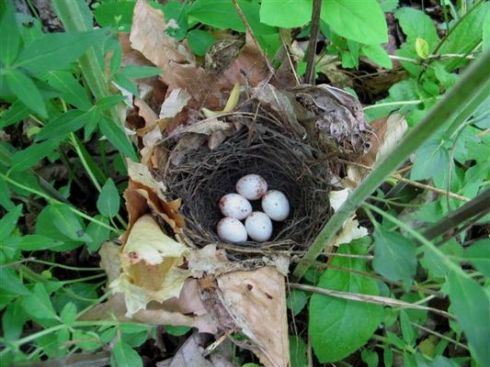
Night Rider
21 JulOk, so this bird can be a bit of an aggressive bully, the Black-and-white Warbler sometimes attacks and fights the Red-breasted Nuthatch, Black-capped Chickadee, Tennessee Warbler, and other species. The Black-and-white Warbler also has an unusually long hind toe and claw on each foot allowing it to move securely on the surface of tree bark. This bird is a deep interior forest bird and one that is effected by the destruction of the Rainforest. This destruction is mostly to benefit for sun grown coffee plantations. If your interested in really helping these beautiful creatures and drinking a wonderful brew at the same time you really should order Birds&Beans Coffee. If you live in MA, ask at your local Whole Foods also.
Our favorite fact about this beautiful guy is that he migrates at night, one smoooth rider! Remember 90% fewer bird species are found in sun-grown coffee areas compared with shade-grown coffee areas.
Sightings of this bird are becoming rarer and rarer so as always give us you sighting stories, send us pictures and we’ll do our best to share them on the blog, or on our other social media pages.
Have a wonderful night,
The B&B Team
Special thanks to the Centreville Middle School for some of the above information.
Tropical Loss
15 Jun- Our songbirds need forests. But which forest? In eastern North America, the amount of forest cover has increased over the past decades as farms have been abandoned and allowed to regenerate into forest. If our forest birds have more, not less, breeding habitat then why have their populations been going down? In the tropics, it’s a different story altogether – logging of tropical forests is currently taking place at the highest rate since the Europeans first colonized the “New World” in the 1600s.
Our migrants are especially vulnerable to tropical deforestation because most species have a tiny wintering range, compared to their breeding range. The entire breeding population of a species has to cram into a much smaller area to find food & survive the over-wintering season – heavy deforestation in one tropical country or region can affect the entire species. As the dramatic loss of tropical forest continues, the importance of traditionally grown coffee becomes critical. Scientific evidence proves that these farms are nearly as good at providing critical habitat as forests. Yet, sadly, this centuries old form of sustainable agriculture is under threat too – by big agriculture’s sun coffee plantations. By buying certified ‘Bird Friendly® coffee we can help arrest this sorry trend.
Birds & Beans® is the only coffee brand in the entire country which solely roasts ‘Bird Friendly®’ certified beans. We roast and sell Smithsonian Migratory Bird Center certified coffee. Three of our roasts are Fair-Trade, the fourth is Rainforest Alliance and all four are USDA Organic certified. Great for birds, people, the Earth. Great tasting coffee too.
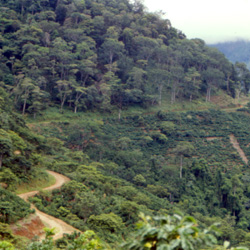 The hillside in this image is quite steep. The forest cover provided by the shade coffee system upslope from the road greatly aids in soil protection. The sun coffee farm downslope from the road exposes the fragile mountain soil to wind and rain erosion. (Cited SMBC)
The hillside in this image is quite steep. The forest cover provided by the shade coffee system upslope from the road greatly aids in soil protection. The sun coffee farm downslope from the road exposes the fragile mountain soil to wind and rain erosion. (Cited SMBC)
Birds & Beans, supporting sustainable agriculture, conserving winter bird habitat and great coffee
9 JunAs you look around at the environmental crisis enveloping our planet, do you ever stop and think, “What can I do?” In Organic Manifesto, Maria Rodale, CEO of Rodale and granddaughter of the man who started the modern-day organic food movement, answers that question firmly: Buy organic food
“If you do just one thing to change the world, go organic.
Going organic is the single most critical (and most DOABLE) action we can take right now to stop our climate crisis. Every acre of ground that’s farmed organically has the potential to pull thousands of pounds of warming greenhouse gases out of our air.
Organic farming is a real, attainable solution to our current global climate crisis! Organic farming can actually remove greenhouse gases from the air – helping to reverse the climate crisis!
Organic living can stop the climate crisis. When you combine the impact of protecting the beneficial mycorrhizal fungi in the soil (which absorb and neutralize carbon) and eliminating all the toxic chemicals (and their packaging and the energy spent producing them), the carbon problem in our atmosphere is practically solved. We still need more renewable energy, but restoring the earth’s ability to sequester carbon is a good place to start. And you’ll do it while eating.”
– Maria Rodale, Organic Manifesto: How Organic Farming Can Heal Our Planet, Feed the World, and Keep Us Safe
All our coffee comes from family owned farms that are independently certified as Smithsonian ‘Bird Friendly®, USDA Organic and Fair-Trade.
Birds & Beans® is the only coffee brand in the entire country which solely roasts ‘Bird Friendly®’ certified beans. We roast and sell Smithsonian Migratory Bird Center certified coffee. Our roasts are Fair-Trade and USDA Organic certified. Great for birds, people, the Earth. Great tasting coffee too.
Pretty in yellow and black
28 MayThe American Goldfinch, what a wonderful image! Fun fact: This bird goes on a feeding frenzy just before a storm.
If you like this little guy and the beauty he brings to our environment visit http://www.birdsandbeans.com to learn how you can be helping migratory songbird through purchasing Birds & Beans Shade Grown Coffee.
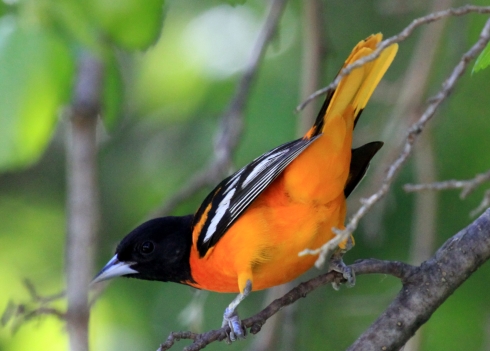
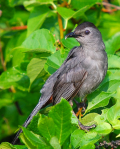
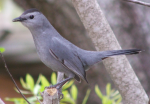
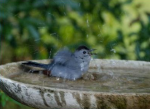

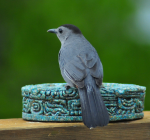
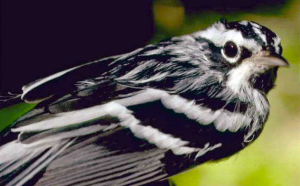
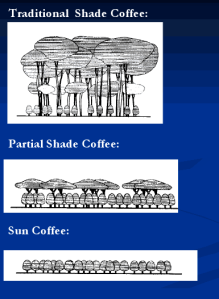

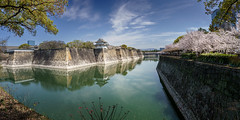
![Grand Teton [Explored 4/28/24] Grand Teton [Explored 4/28/24]](https://live.staticflickr.com/65535/53683680357_50bfb8a6e8_m.jpg)
